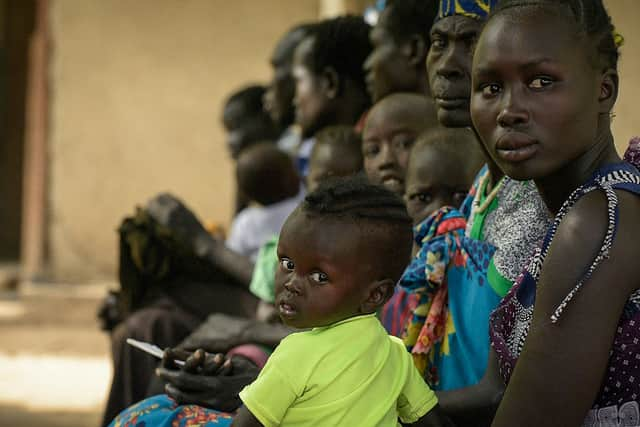WHO approves world’s first malaria vaccine - how deadly is the infection and who will benefit?
This article contains affiliate links. We may earn a small commission on items purchased through this article, but that does not affect our editorial judgement.


In an attempt to eradicate the deadly parasite infection Malaria, the World Health Organization (WHO) is to offer a groundbreaking vaccine to children across Africa.
WHO has now approved use of the RTS,S/AS01 (RTS,S) malaria vaccine among children in sub-Saharan Africa and in other regions with moderate to high P. falciparum malaria transmission.
‘Historic moment’
Advertisement
Hide AdAdvertisement
Hide AdOn 6 October, the organisation’s Director General Dr Tedros Adhanom Ghebreyesus announced the approval, describing it as an “historic moment,”.
“Using this vaccine on top of existing tools to prevent malaria could save tens of thousands of young lives each year,” he added.
The seal of approval comes following results from an ongoing trial which has now reached over 800,000 children in Ghana, Kenya and Malawi since 2019.
How deadly is malaria?
Malaria remains a primary cause of childhood illness and death in sub-Saharan Africa. More than 260 000 African children under the age of five die from malaria annually.
Advertisement
Hide AdAdvertisement
Hide AdIn 2019, nearly half of the world's population was at risk of malaria. Most malaria cases and deaths occur in sub-Saharan Africa. However, the WHO regions of South-East Asia, Eastern Mediterranean, Western Pacific, and the Americas are also at risk.


In 2019, there were 229 million malaria cases worldwide.
That year, 67% of the 409,000 malaria-caused deaths occurred in children under five.
The disease is preventable and curable, though this is the first time WHO have recommended a vaccine for widespread use in Africa.


What causes malaria?
Malaria is a life-threatening disease caused by parasites that are transmitted to people through the bites of infected female Anopheles mosquitoes.
Advertisement
Hide AdAdvertisement
Hide AdIn a statement, Dr Matshidiso Moeti, WHO Regional Director for Africa said the illness has “stalked sub-Saharan Africa, causing immense personal suffering,” for hundreds of years.
As the vaccine was approved, she said: “We have long hoped for an effective malaria vaccine and now for the first time ever, we have such a vaccine recommended for widespread use.
“Today’s recommendation offers a glimmer of hope for the continent which shoulders the heaviest burden of the disease and we expect many more African children to be protected from malaria and grow into healthy adults.”
What happens now the vaccine has been approved?
WHO has recommended the vaccine for children living in regions of sub-Saharan Africa where the infection has a moderate to high transmission, as defined by WHO.
Advertisement
Hide AdAdvertisement
Hide AdThe malaria vaccine will be given to children from the age of five months. Four doses will be given overall.
WHO’s findings of the pilot scheme suggest the vaccination programme is affordable, effective and provides equality of access to prevention for the disease.
So far, of the children vaccinated, two thirds had no access to a mosquito net while sleeping.
The organisation has calculated that the combination of providing mosquito nets and vaccinating will allow over 90 percent of children to benefit from at least one preventative measure.
A message from the editor:
Advertisement
Hide AdAdvertisement
Hide AdThank you for reading. NationalWorld is a new national news brand, produced by a team of journalists, editors, video producers and designers who live and work across the UK. Find out more about who’s who in the team, and our editorial values. We want to start a community among our readers, so please follow us on Facebook, Twitter and Instagram, and keep the conversation going. You can also sign up to our email newsletters and get a curated selection of our best reads to your inbox every day.
Comment Guidelines
National World encourages reader discussion on our stories. User feedback, insights and back-and-forth exchanges add a rich layer of context to reporting. Please review our Community Guidelines before commenting.
